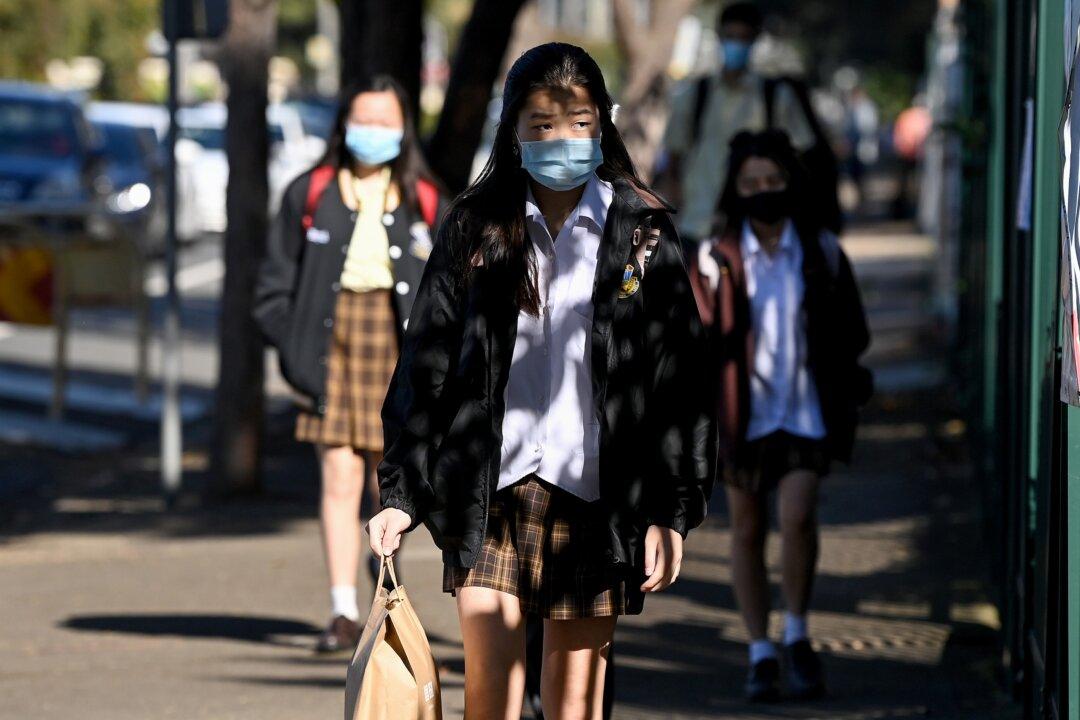Positive COVID cases in three schools have forced hundreds of students and dozens of staff in Western Australia (WA) to self isolate for two weeks—just days within the start of the school year.
A Year 12 student at Harrisdale Senior High School, a Year 11 student at Corpus Christi College, and a teacher at Winterfold Primary School all returned a positive test result.





